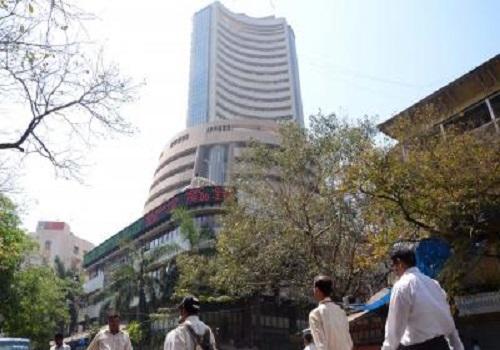
Market Recovery Driven by Positive Global & Domestic Cues: Experts
After three consecutive weeks of losses, the Indian stock market made a strong comeback, closing the week with gains of nearly 2 per cent. This sudden change in trend has left many investors wondering what triggered this turnaround. According to market watchers, among the key drivers, the global sentiment improved following reports of a delay in US tariffs and the possibility of further negotiations, which helped stabilise financial markets.
The Indian equity market, which had been under pressure due to global trade tensions and domestic issues, rebounded sharply in the past week. This surge in the market can be attributed to the positive cues from both global and domestic fronts.
On the global front, the US announced a delay in tariffs on certain Chinese goods, which helped ease tensions between the two nations. This move was seen as a sign of flexibility and willingness to negotiate, which boosted investor confidence. Additionally, improved economic data from the US, such as a rise in retail sales and manufacturing activity, further added to the positive sentiment.
Domestically, the Indian government’s efforts to boost the economy also played a crucial role in the market’s recovery. The government’s decision to reduce corporate tax rates and increase spending on infrastructure projects has been seen as a positive move, which is expected to boost economic growth.
“The global sentiment improved significantly this week, which had a positive impact on Indian markets. The delay in US tariffs and the possibility of further negotiations between the US and China helped to ease concerns over global trade tensions,” said Rakesh Sharma, a Mumbai-based stockbroker.
“Additionally, the government’s measures to boost the economy, such as reducing corporate tax rates and increasing spending on infrastructure projects, have also contributed to the market’s recovery,” he added.
The Indian market’s recovery was led by the BSE Sensex, which rose by nearly 2 per cent to close the week at 38,444. The NSE Nifty50 also rallied, closing the week at 11,441, up by around 1.8 per cent.
Among the key sectors that drove the market’s recovery were financials, realty, and auto. The banking sector, in particular, saw a significant rally, with shares of top lenders such as HDFC Bank, ICICI Bank, and SBI rising by up to 5 per cent.
The realty sector also saw a significant surge, with shares of companies such as DLF, Sunteck Realty, and Oberoi Realty rising by up to 10 per cent. The auto sector, which has been under pressure due to the ban on high-emission vehicles, also saw a relief rally, with shares of companies such as Maruti Suzuki, Hero MotoCorp, and Bajaj Auto rising by up to 5 per cent.
While the market’s recovery is a welcome sign, experts say that it’s essential to maintain a positive approach and not get carried away by the short-term gains.
“It’s essential to keep a long-term perspective and not get carried away by the short-term gains. The market’s recovery is driven by positive global and domestic cues, but it’s essential to remain cautious and monitor the situation,” said Vinod Nair, a senior research analyst at Geojit Financial Services.
“In the absence of any major negative triggers, the market is likely to continue its upward march. However, it’s essential to maintain a positive approach and not get complacent,” he added.
In conclusion, the Indian stock market’s recovery is driven by positive global and domestic cues. The delay in US tariffs and the possibility of further negotiations between the US and China have eased concerns over global trade tensions, while the government’s measures to boost the economy have also contributed to the market’s recovery.
While the market’s recovery is a welcome sign, it’s essential to maintain a positive approach and not get carried away by the short-term gains. It’s essential to keep a long-term perspective and monitor the situation to ensure that the market’s recovery is sustainable.






